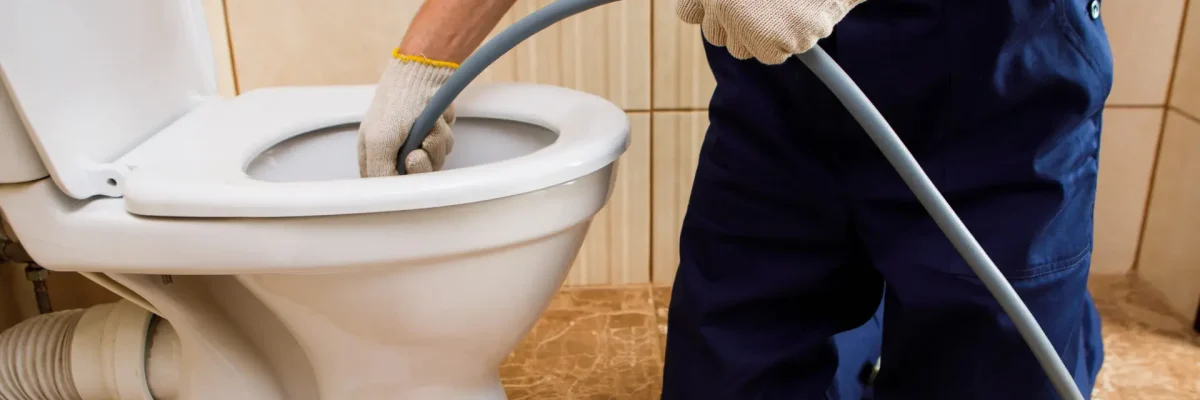Overflowing toilets and sinks: causes, solutions, and professional help
Experiencing water backing up in toilets or sinks can be a stressful and unsettling situation. This common household problem can quickly escalate into serious damage if left unaddressed. In this article, we’ll help you understand the potential causes, explore practical solutions, and discover how Debouchage SV can assist you in resolving these issues effectively and sustainably.
Why is water backing up in your toilets or sinks?
Several factors can cause water to back up in your plumbing fixtures. Below are the most frequent causes, along with an explanation of how they occur and what signs to watch out for.
1. Clogs in the pipes
Clogs are one of the most common reasons for water backing up. Over time, debris such as food particles, hair, grease, or non-dissolvable paper can accumulate in your pipes, restricting or even completely blocking the flow of water. This blockage results in water being unable to drain properly, causing it to back up into sinks, bathtubs, or toilets.
- Signs to look out for: Slow-draining water, gurgling sounds from the drain, standing water in sinks or showers, or water pooling around the base of a toilet.
- High-risk areas: Bathrooms (hair and soap residue), kitchens (grease, food particles), and toilets (excessive toilet paper or non-flushable items like wet wipes).
2. Blockage in the main sewer line
When the main sewer line becomes clogged, it can impact multiple plumbing fixtures in your home. This issue often originates from an accumulation of debris in the main drainage system or from external factors like tree roots or municipal sewer problems.
- What happens when the main line is blocked: Water from higher fixtures (like sinks) may flow back into lower fixtures (like toilets or showers) because it has nowhere else to go.
- How to recognize it: If water backs up in multiple fixtures simultaneously (e.g., water rises in the shower when you flush the toilet), this is a strong indication of a main line problem.
3. Inadequate pipe ventilation
Your plumbing system relies on proper ventilation to maintain balanced air pressure within the pipes. A poorly vented system can create negative air pressure, which prevents water from flowing freely through the pipes. This imbalance can lead to water backing up or unusual noises like gurgling.
- Common issues with venting: Vent pipes may be blocked by debris, bird nests, or other obstructions.
- Symptoms: Gurgling sounds, water rising unexpectedly in other fixtures, or slow drainage across multiple sinks or toilets.
4. Tree roots infiltrating underground pipes
Tree roots are a frequent cause of plumbing blockages, especially in older or cracked pipes. As trees grow, their roots naturally seek out water sources and can infiltrate sewer lines, eventually causing significant blockages or even damage to the pipes.
- Signs of root intrusion: Slow drains, recurring clogs, foul odors, or water pooling in your yard near the affected pipes.
- Why this happens: Over time, small cracks or joints in your pipes allow roots to enter, where they grow and obstruct water flow.
5. Problems with the municipal sewer system
Sometimes, the issue doesn’t originate in your home but rather with the municipal sewer system. Overloaded sewer systems, especially after heavy rainfall, can cause water to back up into your home.
- When this happens: During storms, if the municipal system is overwhelmed, water can flow backward into homes.
- What to watch for: Backups occurring during or shortly after heavy rain, or multiple homes in your area experiencing similar issues.
What to do if water is backing up?
If you’re facing a water backup issue, it’s essential to act quickly to prevent further damage. Follow these steps to address the problem safely:
1. Identify the source of the problem
Start by determining whether the issue is isolated to one fixture (e.g., a single sink or toilet) or if it’s affecting multiple fixtures.
- Single fixture issue: Likely a localized clog.
- Multiple fixtures affected: Could indicate a blockage in the main sewer line or a broader issue.
2. Try using a plunger
A plunger is an effective tool for clearing minor clogs.
- Tips for success: Ensure the plunger creates a tight seal around the drain, and use firm, steady movements to loosen the clog.
3. Avoid chemical drain cleaners
Chemical drain cleaners might seem like a quick fix, but they can damage your pipes, especially if used repeatedly. They’re also ineffective against major clogs or root intrusions.
4. Don’t make the problem worse
Avoid using the affected toilet, sink, or drain until the problem is resolved to prevent overflowing or worsening the backup.
5. Call a professional
If the problem persists or if you suspect a more serious issue (such as a main sewer line clog), contact a plumbing expert like Debouchage SV for immediate assistance.
Why choose Debouchage SV?
At Debouchage SV, we specialize in solving even the most complex plumbing issues. Here’s how we can help you:
1. Advanced camera inspections
We use high-tech cameras to inspect your pipes and identify the exact cause of the problem, whether it’s debris, roots, or structural damage.
2. High-pressure cleaning
Our professional-grade high-pressure jetting equipment can remove even the most stubborn blockages and restore optimal water flow in your pipes.
3. Tree root removal
If tree roots have infiltrated your pipes, we use specialized techniques to remove them safely and prevent further damage.
4. Emergency services
Our team is available for fast, professional intervention to resolve urgent issues before they escalate.
5. Preventative maintenance
We also offer regular maintenance services to help you avoid future blockages and keep your plumbing system in excellent condition.
Tips to prevent future water backup issues
Taking proactive steps can help you avoid plumbing problems and maintain the health of your pipes. Here are some practical tips:
– Avoid flushing non-dissolvable items
Items like wet wipes, sanitary products, and paper towels should always go in the trash, not the toilet.
– Clean your drains regularly
Pour hot water mixed with vinegar down your drains periodically to dissolve grease and debris.
– Schedule routine inspections
Regular inspections by professionals like Debouchage SV can identify potential issues before they cause major problems.
Contact Debouchage SV today
Don’t let a water backup disrupt your peace of mind. Whether you need urgent assistance or preventative maintenance, Debouchage SV is here to help. Contact us today for fast, reliable, and professional service!






